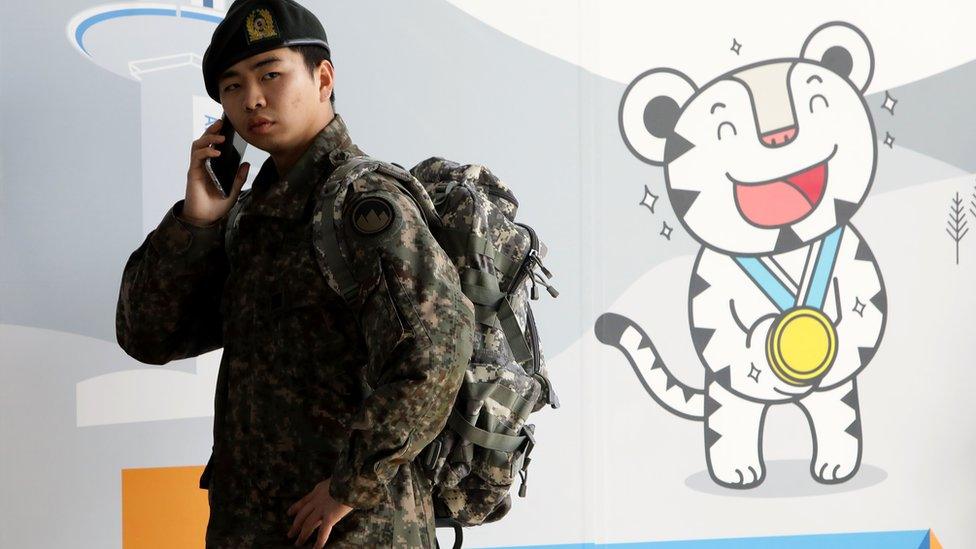The coach who helped North Korea's skaters qualify for the Olympics
- Published
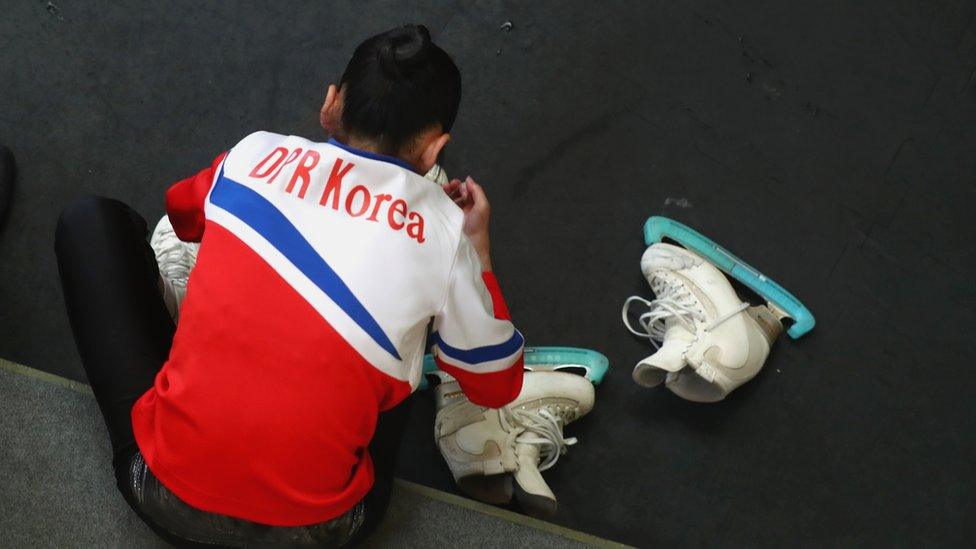
Tae Ok Ryom adjusts her skates prior to her Pairs short program with Ju Sik Kim
Canadian figure skating coach Bruno Marcotte will be watching closely when North Korea's figure skating team takes to the ice in Pyeongchang during the Olympics.
"They have beautiful, classical lines," he says of athletes Kim Ju-sik, 25 and Ryom Tae-ok, 18.
"Good posture. Their unison is really next to none. As far as the technical side, they're strong overall."
But the first thing he'll be looking for are any improvements since he coached the North Korean pair in Montreal last summer.
Kim and Ryom are currently the only North Korean athletes expected to fly their country's flag at the Winter Olympic Games in South Korea.
Marcotte first noticed the athletes about two years ago at an international competition and was curious about the pair. At the time, he thought there were simply "okay" skaters.
North Korea's star ice-skating duo have qualified for the Winter Olympics
He saw them skate again at the 2017 Asian Winter Games in Japan and noticed major progress in their technique, so Marcotte approached the young skaters to compliment them on their performance.
Soon after they came to him with an request - would he consider coaching them in Montreal and would his sister, Julie, a choreographer, help them with a programme?
Marcotte concedes he had a moment of pause before saying yes.
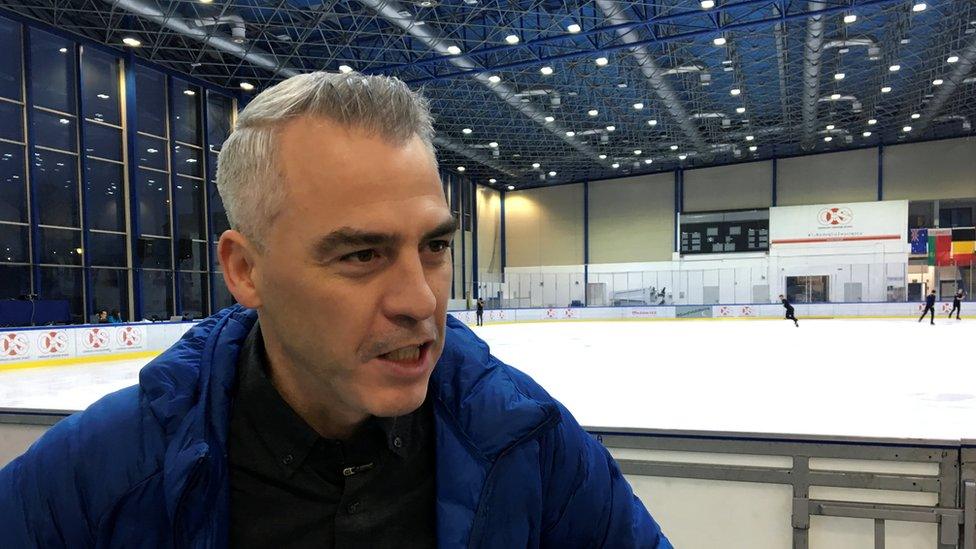
Coach Bruno Marcotte says the pair skates with "so much passion, so much emotion"
"I get approached by people from different countries all the time and usually I don't think twice about their background," he told the BBC.
"So I decided to treat these guys the same way as I did everybody else."
Before they arrived in Montreal, Marcotte had to scramble to find the pair accommodations.
"As you can imagine there's no Expedia or Airbnb [in North Korea]," he says.
He said the athletes were respectful, "extremely positive" and hard working during the eight-week training period.
"One thing that surprised me is their joy, their relationship, their happiness and how grateful they are for every opportunity they get," he says.
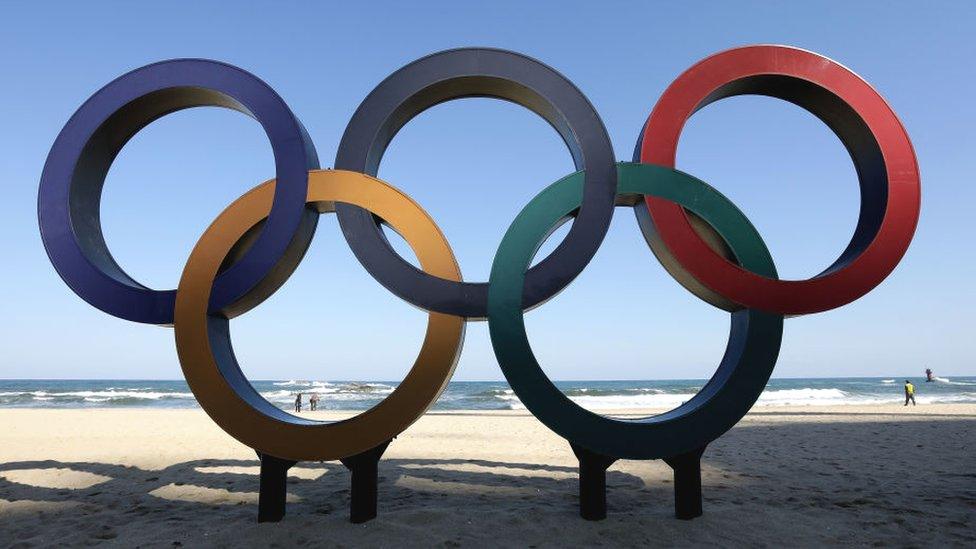
North Korea first expressed interest in joining the Pyeonchang Games during the New Year
They snapped up final qualifying spots to compete in the Olympics in September at the Nebelhorn Trophy in Germany, skating their short programme to the Beatles and their free skate to Quebec superstar Ginette Reno's song, Je suis qu'une chanson, in sparkling black and silver costumes.
"They skate with so much passion, so much emotion," says Marcotte.
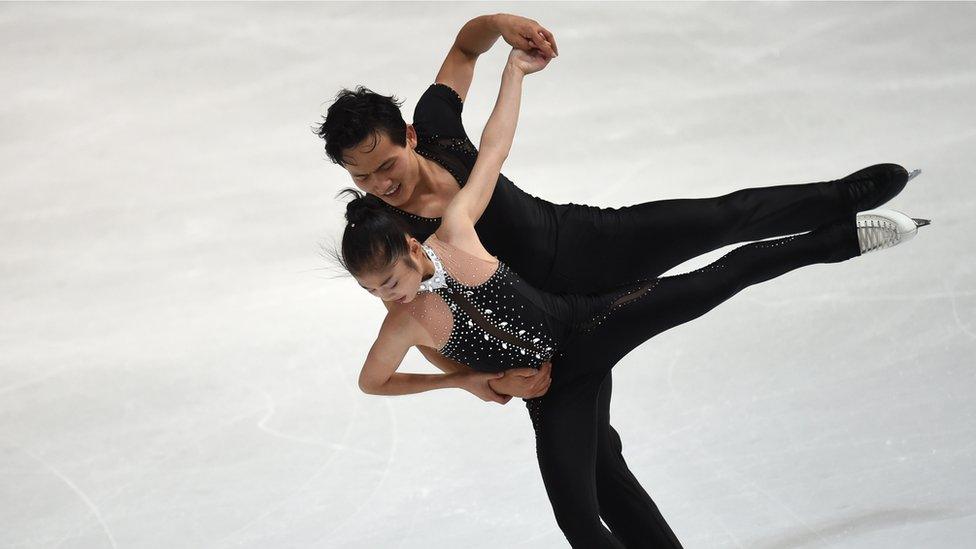
The pair qualified for the Olympics in September
Still, amid escalating tensions on the Korean peninsula it was unclear whether they would even attend the Games. North Korea did not confirm the pair's attendance before the deadline late last year, though the International Olympic Committee (IOC) reserves the right to give out special participation spots.
A breakthrough came when North and South Korea agreed on 4 January to hold military talks to defuse border tension, following their first high-level meeting in two years. North and South Korea are technically still at war with each other.
The North also agreed to send a delegation to the 2018 Winter Olympic Games, which will include athletes, officials and a group of cheerleaders.
The IOC supports the participation of North Korean athletes to the Games in Pyeongchang and is hosting talks on 20 January to discuss details of the country's attendance.
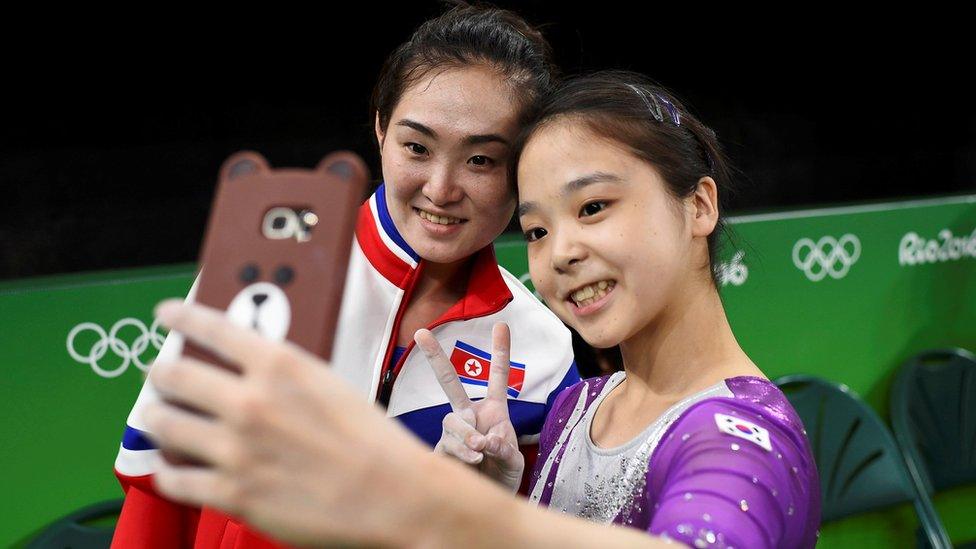
This photo of Korean gymnasts at the 2016 Olympics has been hailed as representing the Olympic spirit
Michael Madden, founder of NK Leadership Watch, an analysis website that focuses on North Korea, says getting the North to the games "is a good thing".
"This is the easy part of inter-Korea rapprochement. Everything else is going to be a long, long road," he says.
Madden points to the goodwill generated by the selfie snapped of gymnasts Lee Eun-ju of South Korea and Hong Un-jong of the North at the 2016 Summer Olympics in Rio.
"Just very good publicity. It shows North Korea is not completely a pariah state," he says, and Kim and Ryom will be "national heroes" back home.
"They will be treated very well by the state whether they do well or not."
Canada has welcomed efforts to involve North Korea in the Olympic games and US President Donald Trump has praised South Korea's President Moon Jae-in for bringing about the inter-Korean talks.
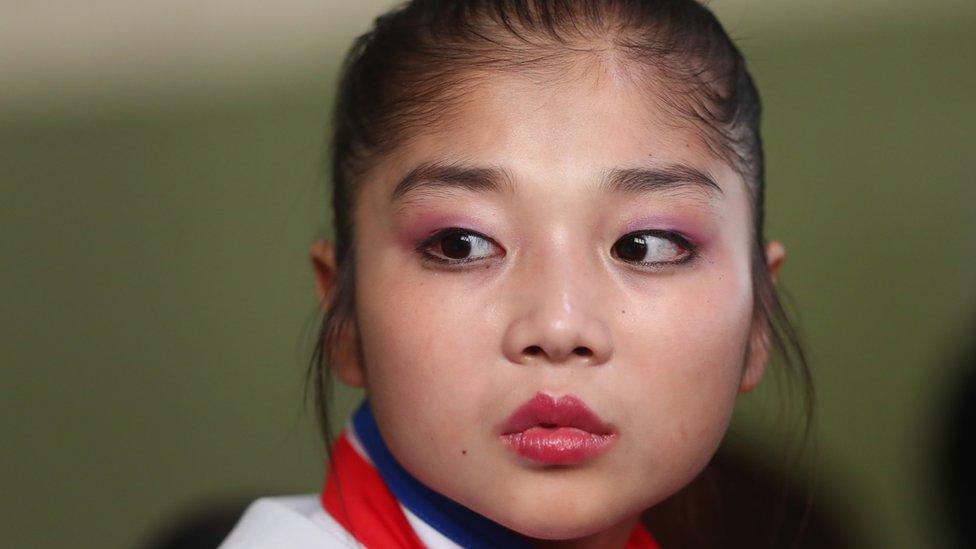
North Korean figure skater Ryom Tae-ok looks on prior to competing in September
Canada and the US are co-hosting a meeting of foreign leaders next week to discuss sanctions and diplomatic efforts related to North Korea.
Political scientist Katharine Moon says North Korea's desire to participate in the games in Pyeongchang is two-fold - as an ice-breaker after months of sabre-rattling and as "another way to show the world North Korea's muscle - literally".
"[The regime] wants to present and show off their athletes" who are trained and supported by the state to pursue their sport, she says.
"The amount of resources they put into this as a poor country is quite high."
But Moon says that doesn't mean it's all for propaganda purposes. Both sides have a lot invested in a possible rapprochement.
"It's serious that they made that initiative and are actually showing up and trying to cooperate, at least in terms of Olympic participation," she says.
Marcotte believes that, as athletes, Kim and Ryom have earned the right to compete in the winter games.
"They deserve to be there," he says.
And he says he believes in the power of sport to bridge divides, and in the Olympic spirit.
"It was meant to bring everybody together - all the cultures, all the countries, all the continents, and also fair play," Marcotte says.
"Maybe the Olympics in South Korea right now is the right place at the right moment. "
- Published9 January 2018
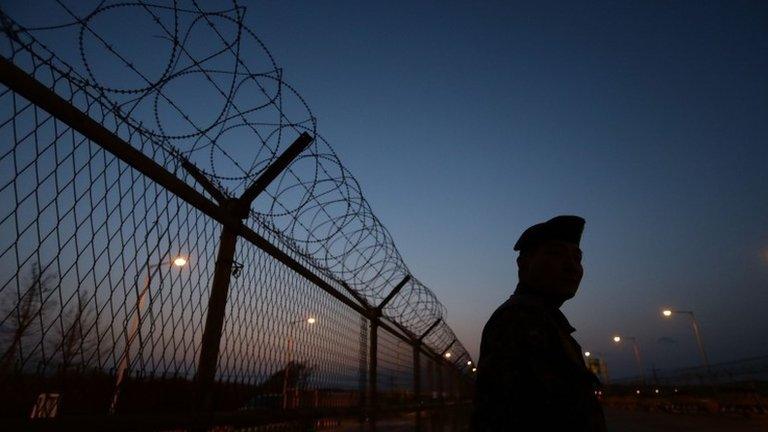
- Published9 January 2018
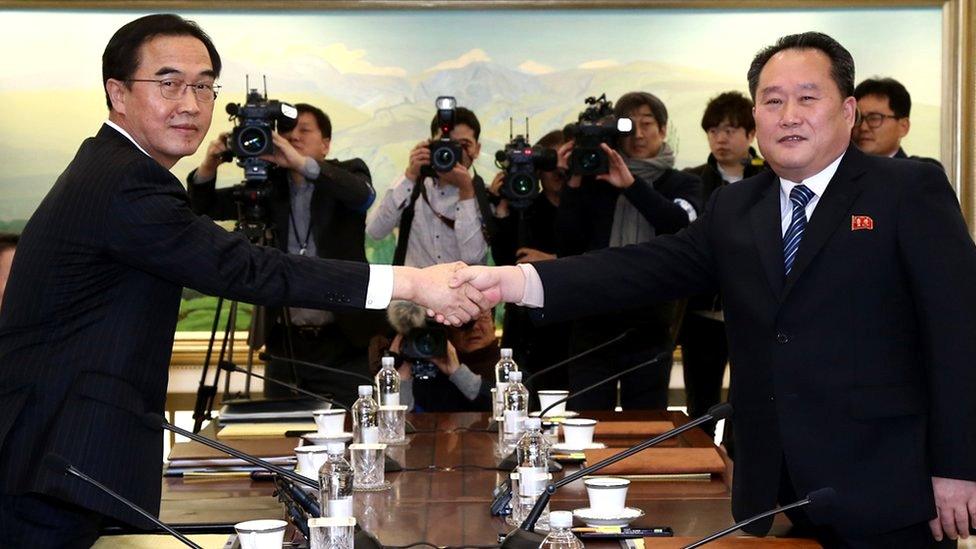
- Published8 January 2018
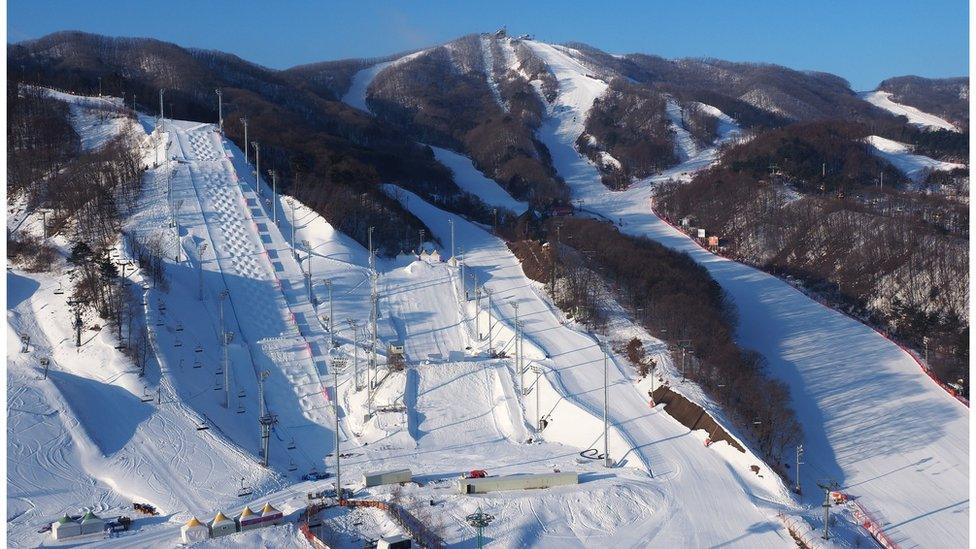
- Published6 January 2018
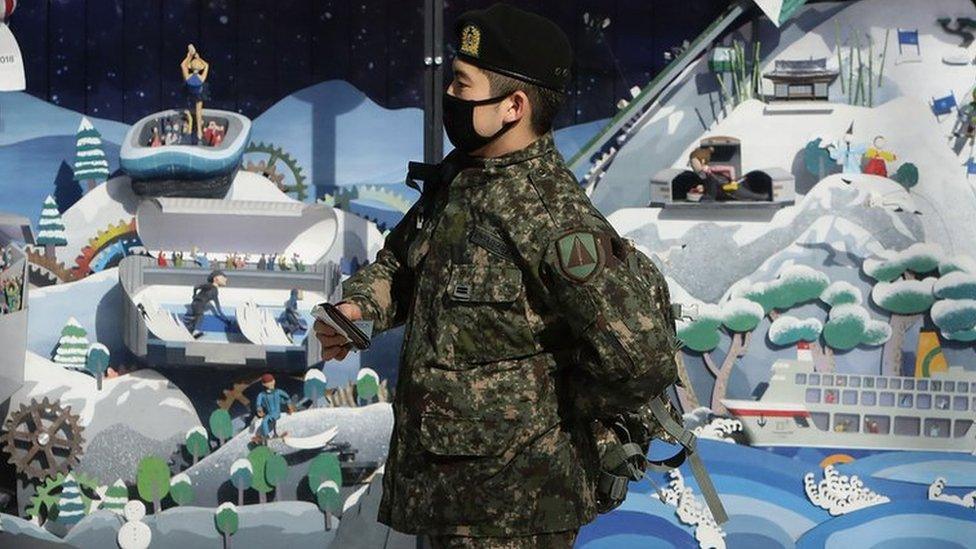
- Published5 January 2018
